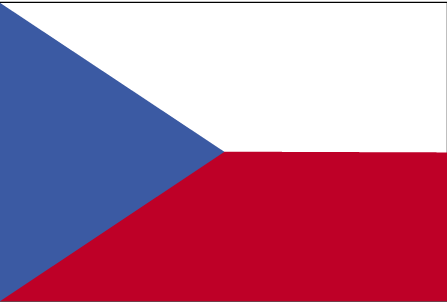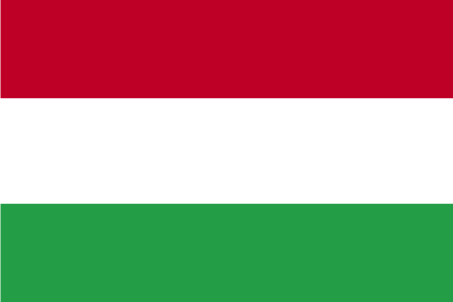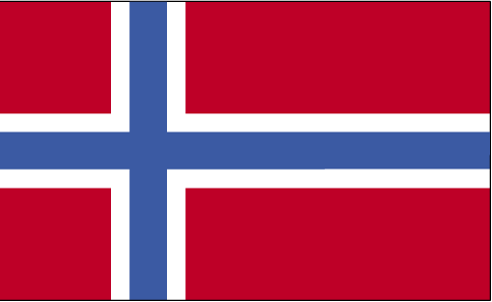Resolution #170
 |
The question of future human mass migration due to climate change |
| Committee: SPECPOL | |
| Main Submitter: USA | |
| Submitted: 01/04/2022 17:21 |
| Status |
|---|
| Passed cosubmitter sheet validation |
| Approved by approval panel |
| Selected for debate by secretariat |
| Passed by committee (SPECPOL) |
Committee Voting
| For: | 30 |
| Against: | 5 |
| Abstentions: | 0 |
Options
Co-submitters
 | Australia |
 | Botswana |
 | Croatia |
 | Czech Republic |
 | France |
 | Hungary |
 | Norway |
 | Vietnam |
Resolution
Committee: The Special Political and Decolonisation Committee
The Question of: Future Human Mass Migration due to Climate Change
Submitted by: USA
Co-submitted by: Australia, Botswana, Croatia, Czech Republic, France, Hungary, Norway, Vietnam,
The Special Political and Decolonisation Committee,
Recalling the Secretary-General's report "In safety and dignity: addressing large movements of refugees and migrants" (2016), which led to the passing of the the "New York Declaration for Refugees and Migrants" (2016), adopted by the General Assembly at its seventy-first session,
Noting the UN High Commissioner for Refugees (UNHCR) Strategic Framework for Climate Action (2020), which "provides a common framework and approach to step up (the UNHCR's) ambition under three core pillars for action",
Aware of the International Organisation for Migration (IOM) "World Migration Report 2020", which stated that "There is increasing evidence that the magnitude and frequency of extreme weather events are rising, and this is expected to increasingly affect migration and other forms of movement,"
Reaffirming the Universal Declaration of Human Rights, which proclaims that all human beings are born free and equal in dignity and rights and that everyone is entitled to all the rights and freedoms set out therein, without distinction of any kind, in particular as to race,
Bearing in mind that policies and initiatives on the issue of migration, including those that refer to the orderly management of migration, should promote holistic approaches that take into account the causes and consequences of the phenomenon, as well as full respect for the human rights and fundamental freedoms of migrants,
Recognizing the continuing degradation of our climate and the rise in global temperatures,
Acknowledging that a future of global mass migration as a result of climate change shall be one of the greatest challenges posed to our collective future as a human race,
-
Calls for the creation of a UN sub body to be known the United Nations Climate Migration Committee (UNCMC) that will incorporate representatives from all relevant UN bodies, relevant NGOs and representatives from member nations that will oversee and implement the clauses laid out in the resolution;
-
Reaffirms all the previous work done to combat climate change, the the best solution to preventing human mass migration in relation to climate change, including but not limited to the Paris Climate Accords, the Kyoto protocols and the SDGs;
-
Suggests the creation of a Mass Media Campaign to be overseen by the UNCMC using both digital and print methods including radio, tv, billboards, social media, pamphlets and newspapers that will:
-
Promote climate change education by providing free online educational resources that can be used in education and shared online,
-
Spread awareness about other cultures that aid better intercultural understanding in member nations, allowing for a more integrated society,
-
Spread awareness of the many threats of climate change and ways that individuals, business and communities can become more environmentally-friendly,
-
-
Further Calls for the creation of a report under the UNCMC with assistance from UNHRC, UNDP, UNEP, IOM and other relevant bodies that will assess the preparedness to cope with the climate crisis and migrant crises that arise as a result;
-
Asks for the creation of UN fund overseen by the UNCMC for migrants as a result of climate change and to aid member nations who have taken in a significant number of migrants or who have to assist IDPs that will:
-
Create and expand education programmes that will seek to educate and retrain migrants in their new locations,
-
improve facilities for accommodating migrants, especially in urban areas, where they are most likely to move to,
-
Provide fiscal incentives to support businesses who employ refugees such as but not limited to providing employer tax reductions,
-
Aim to make healthcare services more accessible to migrants;
6.Further Asks the World Meteorological Organisation (WMO) and the UNCMC to provide an annual report to the Secretary-General, to be published and made available online, providing information and guidance to countries which are at risk of becoming uninhabitable due to climate change, with specific recommendations made to each member nation regarding their weather and climate monitoring technology, with the World Bank funding member nations to implement said recommendations if desired by the member nations, with particular emphasis placed on vulnerable regions and the implementation of early warning systems;
7. Recommends that aid be made available from the UN overseen by the UNCMC that will provide support to those member nations that have to deal with a large number of IDPs as a result of climate change;
8. Further Asks for the UN to establish an Climate Emergency Migration board (EMB) to help develop quickly and effectively the proper infrastructure to deal with mass migration as a result of climate change in MEDCs and LEDCs to ensure that the economic and environmental damages are limited. This board would discuss matters such as but not limited to:
-
How it would deal with the increase of traffic and congestion in certain areas and big cities,
-
How the increase in population would affect energy usage in countries that rely on the use of fossil fuels for energy production,
-
How the increase in population would increase the use of products that could be harmful to the environment;
9. Proposes to hold an annual conference with a mix of online and in person attendance on UN International Migrants Day (18th December) to hold and coordinate intergovernmental discussion groups, guests speakers and panels of experts on relevant topics, and the distribution of informative materials on the future of human mass migration as a result of climate change;
10.Encourages the foundation of a new voluntary collaborative network, overseen by the UN Environmental Programme (UNEP) and led by a UN-appointed group of experts, for small island nations, nations with small islands within their jurisdiction, and nations at great risk of rising seas, to discuss innovative infrastructural methods to combat the impacts of climate change, in areas such as transport, housing, and energy, to protect against their nations becoming partially or fully uninhabitableand make funding available to these nations to develop infrastructure to protect themselves from the effects of Climate Change;
11. Strongly advises governments
-
Implement laws to prevent climate change such as but not limited to :
-
Stopping the production of petrol and diesel cars by 2040 in OEDCs and 2050 in LEDCs,
-
The requirement of solar panels on new buildings in member nations, with funding available to LEDCs from the UNEP,
-
-
Prepare for migration if preventative efforts fail by constructing cheap but adequate housing for refugees like seen in France and the USA.